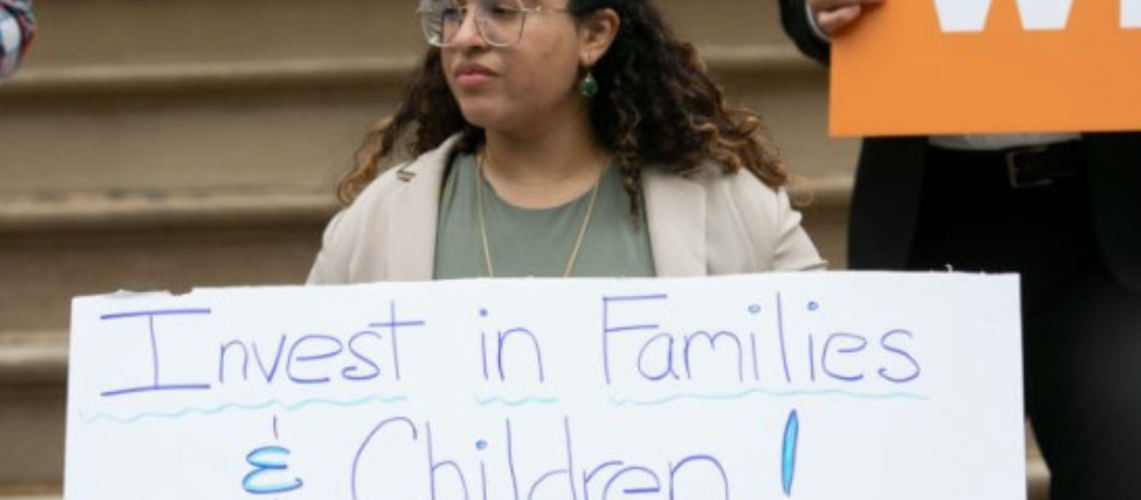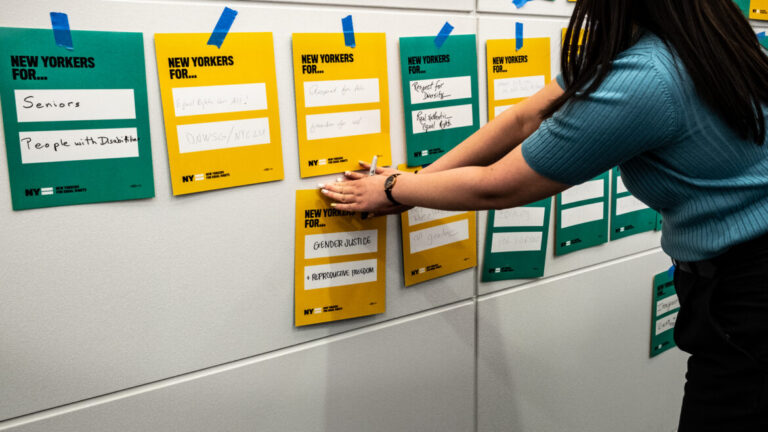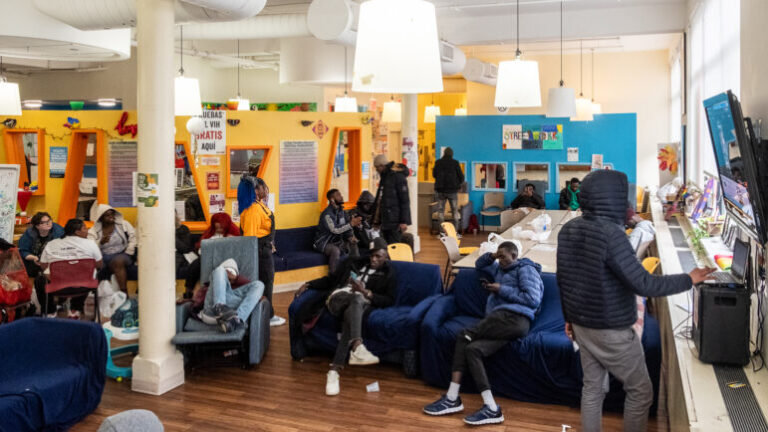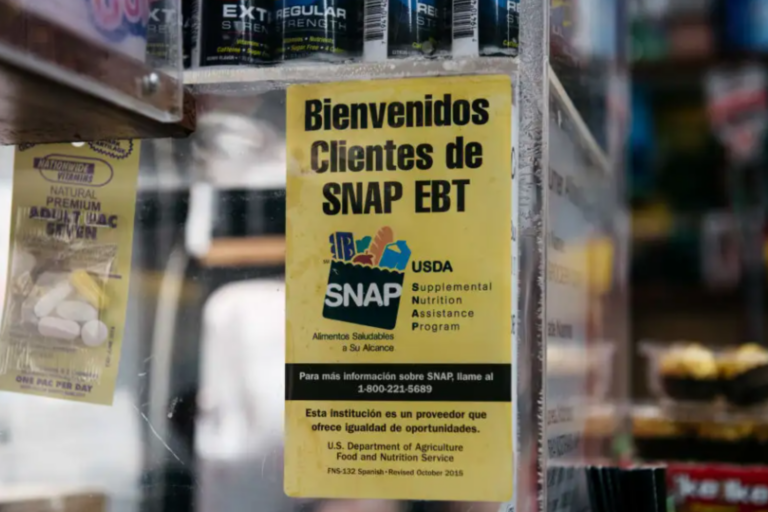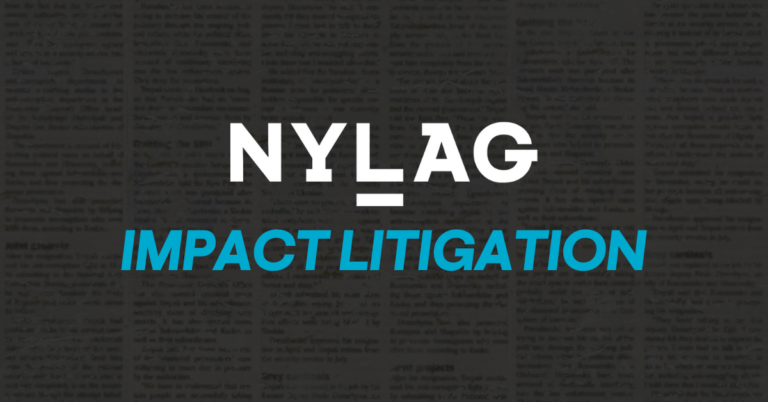By Jeanmarie Evelly
City Limits
Supporters of the legislation, which would require the city to fund the placement of mental health professionals on-site at all homeless shelters with children, say it would increase access to care for families experiencing the crisis of housing insecurity. But some advocates worry it could inadvertently ensnare more low-income families in the child welfare system.
Lawmakers are debating a bill that would require the city to fund the placement of mental health professionals on-site at all homeless shelters with children—what supporters say would ensure families experiencing the trauma of housing insecurity can access care. But advocates worry the move could inadvertently ensnare more low-income families in the child welfare system.
The legislation, sponsored by Manhattan City Councilman Erik Bottcher, would mandate the city provide on-site mental health services at all shelters that serve families with kids, maintaining a ratio of at least one full-time counselor or therapist for every 50 such families. (There were nearly 11,000 families with children staying in a Department of Homeless Services shelter Wednesday night, city data shows, up from 8,455 at the start of the year.)
The bill has the support of 36 other councilmembers and has been championed by former City Council Speaker Christine Quinn, now executive director at Win, a homelessness nonprofit and the city’s largest family shelter provider.
“This is a challenge for all of us who run shelters for families—that we don’t have funds that specifically can be used for hiring or contracting with clinicians,” Quinn told lawmakers at a Council hearing on the bill Tuesday, where she spoke of the “intersectionality of trauma and homelessness,” saying many of Win’s clients are disproportionately dealing with issues like depression, PTSD or intimate partner violence.
Between April and the end of June, some 1,403 families staying in the city’s shelter system were screened for behavioral health services, but just 330 were actually referred to a specialist for care during that time, city data shows.
“Becoming homeless and experiencing homelessness in and of itself is a traumatic experience,” Quinn said. “A homeless shelter should be more than a roof over a family’s head. The time a family spends in shelter is an opportunity to eliminate barriers to mental health care by uncovering their needs, reducing the stigma and initiating treatment.”
But Adams administration officials said meeting the bill’s requirements would be onerous and costly, and might not be feasible in light of a nationwide shortage of mental health professionals that has lead to months-long waitlists for many people seeking care.
“It could be difficult to comply with the bills requirements at any price point,” Marricka Scott-McFadden, deputy commissioner for intergovernmental and legislative affairs at the Department of Social Services, told councilmembers Tuesday.
While the Department of Homeless Services does not provide mental health services on-site directly at family shelters, it does provide clients with access to social workers who assess their needs and then refer them to care outside the system, she explained, saying that’s in line with the city’s larger goal of moving families into permanent housing (though shelter stays have gotten longer in recent years).
“Given that families will be transitioning from shelter, it would also be more effective to refer them to services in the community,” Scott-McFadden said.
Some advocates for homeless New Yorkers also oppose the bill, but for a different reason: They worry the placement of mental health professionals directly into shelters, where families are living during a time of crisis, could blur the line between care and government oversight.
Life in shelter already subjects families to an extra level of behavioral rules and scrutiny, putting them at additional risk of involvement with a child protective services system critics say is often biased against low-income families. That system “conflates poverty with neglect,” Alexandra Dougherty, a senior staff Attorney at Brooklyn Defender Services, testified to councilmembers Tuesday.
“We’re concerned that introducing mental health professionals who are mandated reporters directly into family shelters, which are people’s homes, will inadvertently increase surveillance of families,” Dougherty said.
A 2017 report from The New School’s Center for New York City Affairs found that “child welfare involvement is rampant among families in shelters.” About a quarter of families in the shelter system had an open case with the city’s Administration for Children’s Services (ACS) during the period examined, and half of those families had children in foster care, the report said.
“This raises real privacy concerns and is likely to increase the shelter-to-ACS pipeline that harms families,” Nora McCarthy, director and co-founder of the New York City Family Policy Project, testified to councilmembers of the “unintended effects” the legislation could bring. “It also conflates involvement in shelter with mental health issues in a way that’s troubling.”
Quinn and other supporters of the bill, including General Welfare Committee Chair Diana Ayala, discussed potential changes to the wording of the legislation to make it clear that all on-site mental health services would be voluntary and to set strict privacy perimeters for families who choose to use them.
Deborah Berkman, coordinating attorney of the Shelter Advocacy Initiative at the New York Legal Assistance Group (NYLAG), said the organization supports the spirit of the bill, but would want to make sure the final version includes explicit protections prohibiting “the sharing of information between a mental health provider and the rest of the shelter staff and DHS.”
But other advocates argued the resources the legislation looks to provide, while well-intended, would be better used to shore up mental healthcare options for families in shelter outside the facilities they’re staying in. “We think a better option for the city is to fund dedicated lines for additional mental health support off site,” said Helen Strom, homeless and benefits director at the Urban Justice Center’s Safety Net Project.
“We’ve seen with many providers a tendency to pathologize and say that the cause of families’ issues is mental illness,” Strom added, “When we know that the primary drivers of family homelessness are eviction, unsafe housing conditions, overcrowding, domestic violence—not mental health.”
Originally published in City Limits on September 15, 2022

